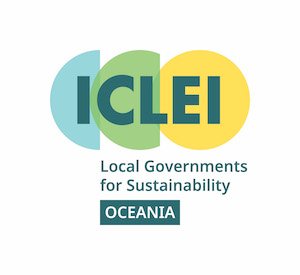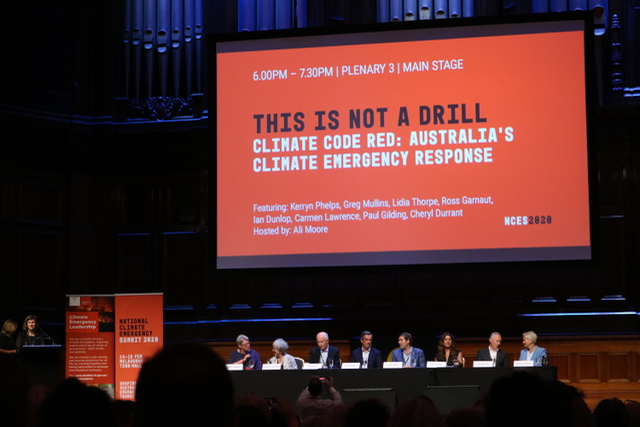National Climate Emergency Summit, Melbourne
Highlights from the National Climate Emergency Summit:
A possible need for a ‘climate action war cabinet’; that a response should be akin to national ‘wartime’ footing.
That framing the Climate Emergency should focus on action and agency, not just catastrophic framing without solutions.
That in a true Climate Emergency, climate change becomes the top priority for policy and economies, including mobilisation of all necessary resources.
Melbourne, 14-15th of February. A string of chattering people streamed up Collins Street from the doors of the Melbourne Town Hall, waiting to enter Australia’s first National Climate Emergency Summit. At the time, over 70 local governments in Australia and 1,350 globally had declared a climate emergency. ICLEI personnel, councils, and representatives from our Regional Executive and Global Executive Committees were present.
Speakers included City of Melbourne Lord Mayor, Sally Capp, supported by ICLEI First Vice President Cr Cathy Oke, newly appointed Leader of the Australian Greens, Adam Bandt, City of Sydney Lord Mayor, Clover Moore, renown climate experts Michael Mann and David Spratt, and former Federal Minister for the Environment, Peter Garrett.
Councillor Trent McCarthy from the City of Darebin was also a stand out speaker. Darebin was the first local government in the world to declare a climate emergency in 2016 under the leadership of former Mayor Kim Le Cerf, the current Chair of the ICLEI Oceania Regional Executive Committee.
See City of Darebin’s Climate Emergency resources for councils
On the second day of the Summit, ICLEI attended a gathering of 160 local councillors, officers, and local government networks from across Australia to discuss and review the proposal for a Climate Emergency Australia network. There was a strong sense of the critical role of local government leadership, but acknowledging openly the need to create stronger approaches with state and federal governments.
The session was organised by the City of Darebin and run by Karen Gardham from the Northern Greenhouse for Greenhouse Action (NAGA), a regional alliance of nine local governments working together to create a low-carbon, climate adaptive future. The participatory session was also a great opportunity for peer-to-peer networking. Mayors, councillors, sustainability officers and industry professionals lingered long after the end of the workshop to strengthen ties, tee up next meetings and share ideas. It was a perfect example of local government climate action in practice.
The National Climate Emergency Summit resulted in the Safe Climate Declaration, which calls for a new collective response to climate change. Anyone can endorse the Declaration and join the call for Australia’s emergency transition by visiting the website.
From ICLEI’s perspective, the Summit raised key questions that require further exploration:
What are the risks to democracy for a national ‘wartime’ response to the Climate Emergency?
How can local governments’ climate leadership be integrated upwards with state and federal action?
How can local governments and networks improve our sideways collaboration between councils and council networks?
How can local governments that declare a Climate Emergency ensure their subsequent actions are measurable, timely and accountable?
How can the Climate Emergency be framed so that local government leaders are empowered with agency to take action in the face of a daunting global challenge?
Written by Timothy Shue




